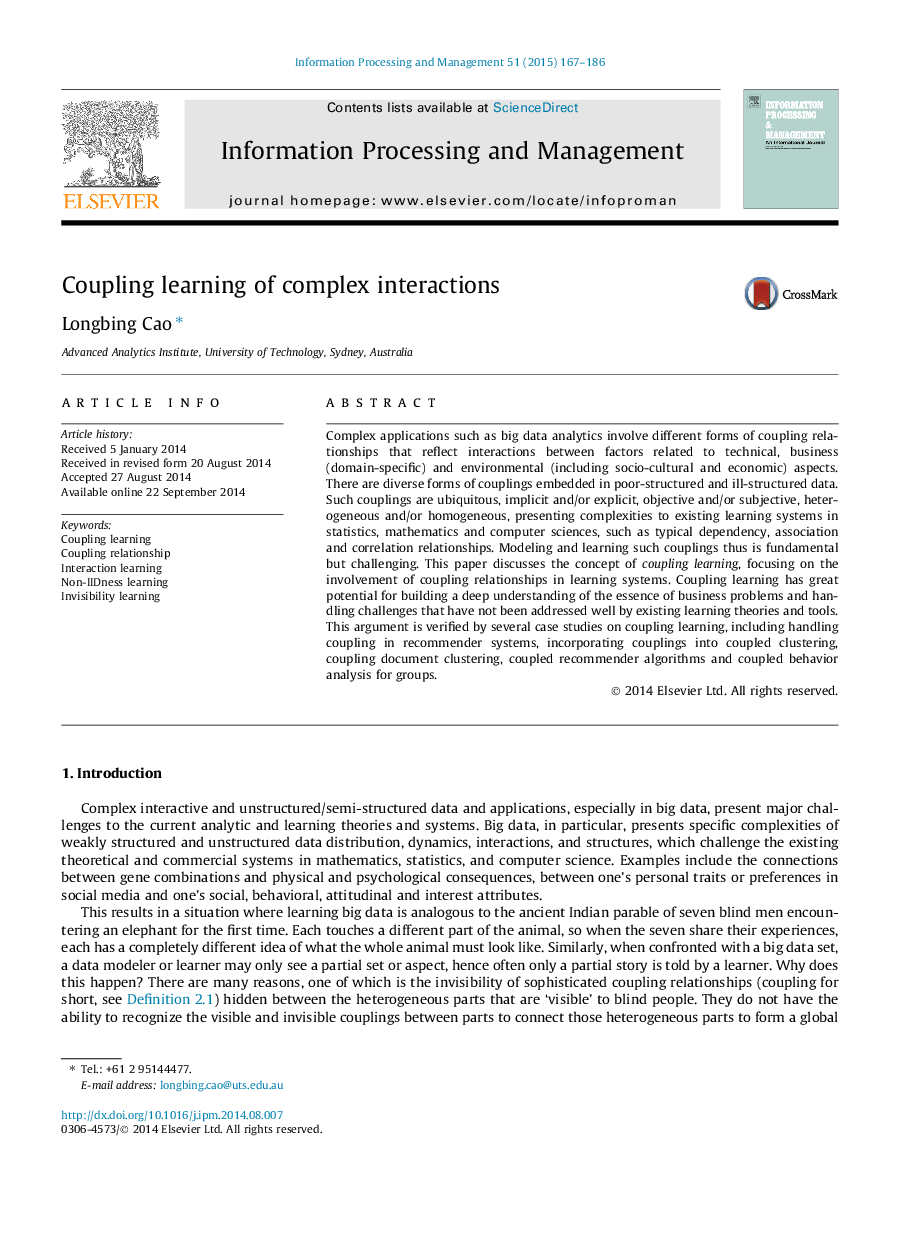| Article ID | Journal | Published Year | Pages | File Type |
|---|---|---|---|---|
| 515475 | Information Processing & Management | 2015 | 20 Pages |
•The concept of coupling and major coupling relationships.•Coupling layers and forms appearing in complex data and applications.•Modeling couplings, measuring couplings and the curse of couplings.•A new theoretical framework for the next-generation recommender systems.•Case studies of learning couplings in data mining and recommendation.
Complex applications such as big data analytics involve different forms of coupling relationships that reflect interactions between factors related to technical, business (domain-specific) and environmental (including socio-cultural and economic) aspects. There are diverse forms of couplings embedded in poor-structured and ill-structured data. Such couplings are ubiquitous, implicit and/or explicit, objective and/or subjective, heterogeneous and/or homogeneous, presenting complexities to existing learning systems in statistics, mathematics and computer sciences, such as typical dependency, association and correlation relationships. Modeling and learning such couplings thus is fundamental but challenging. This paper discusses the concept of coupling learning, focusing on the involvement of coupling relationships in learning systems. Coupling learning has great potential for building a deep understanding of the essence of business problems and handling challenges that have not been addressed well by existing learning theories and tools. This argument is verified by several case studies on coupling learning, including handling coupling in recommender systems, incorporating couplings into coupled clustering, coupling document clustering, coupled recommender algorithms and coupled behavior analysis for groups.
